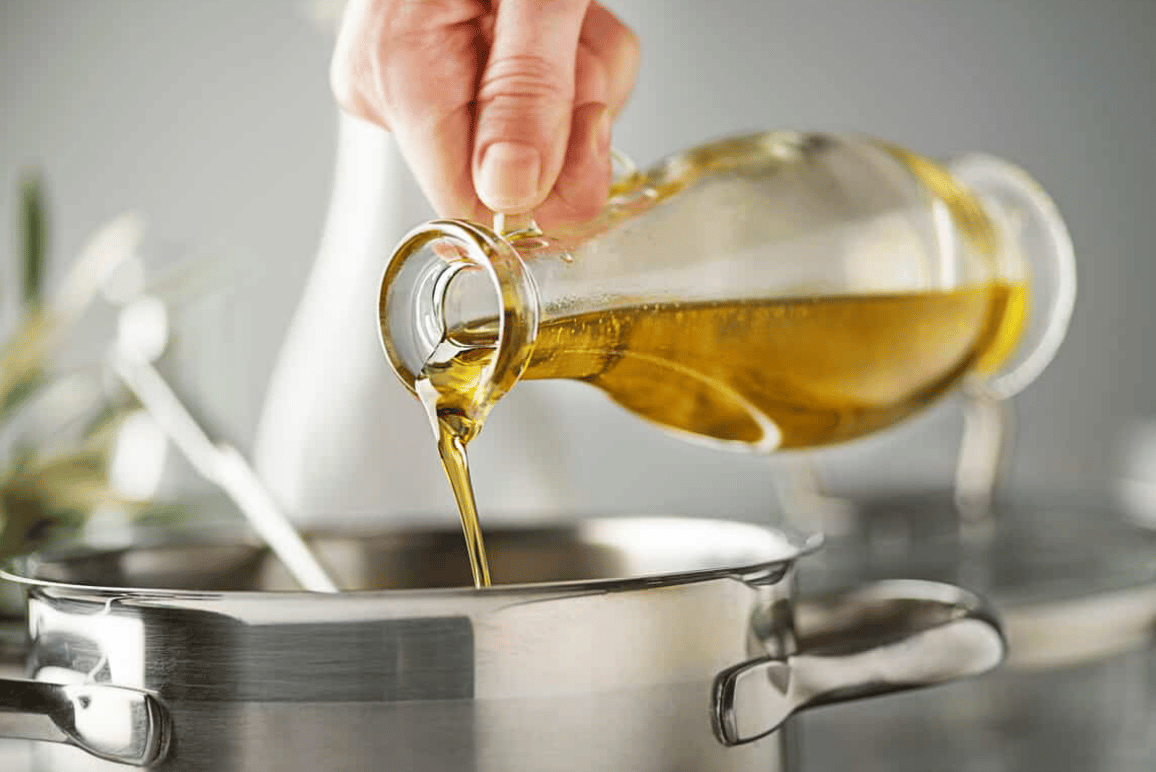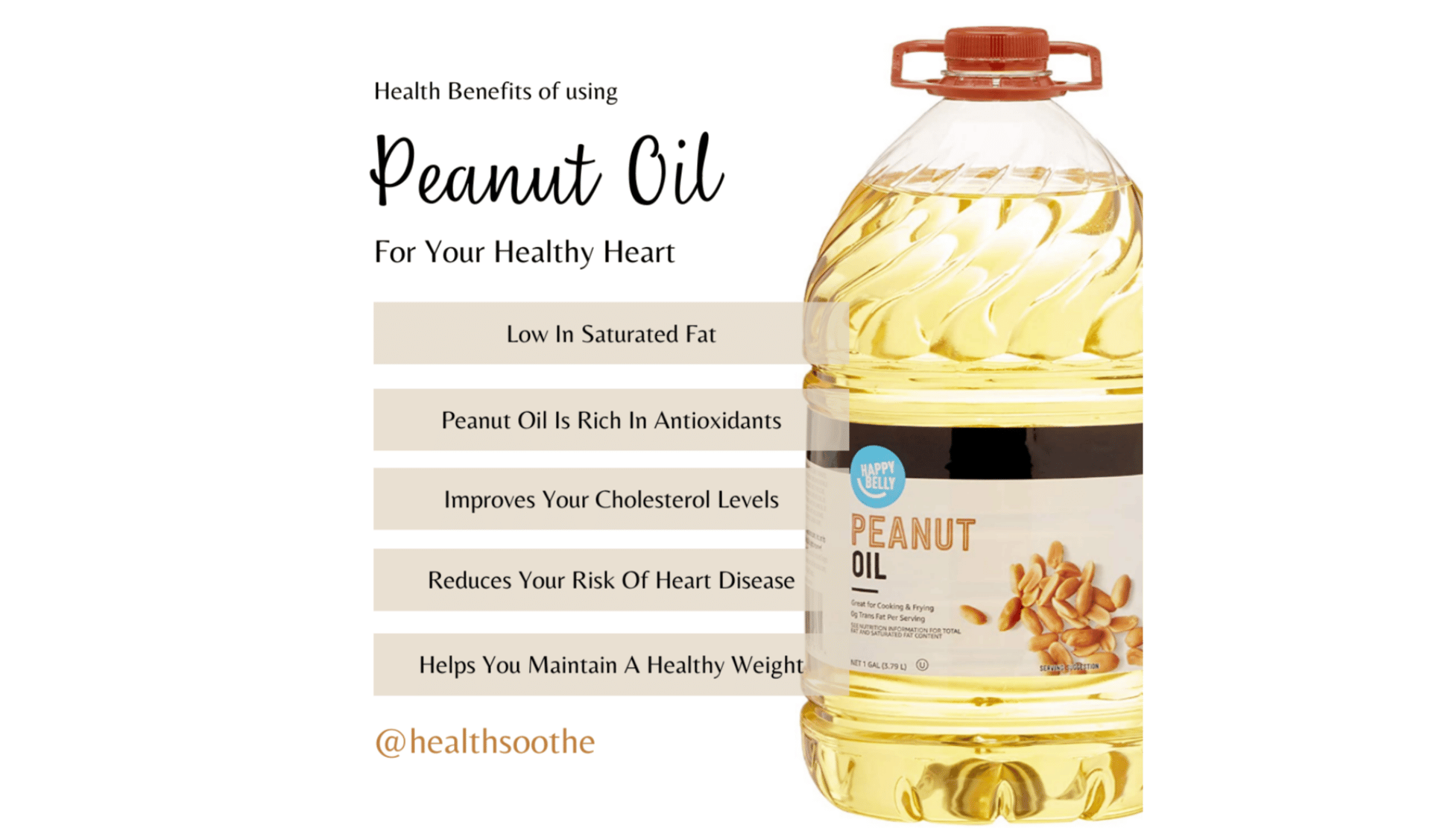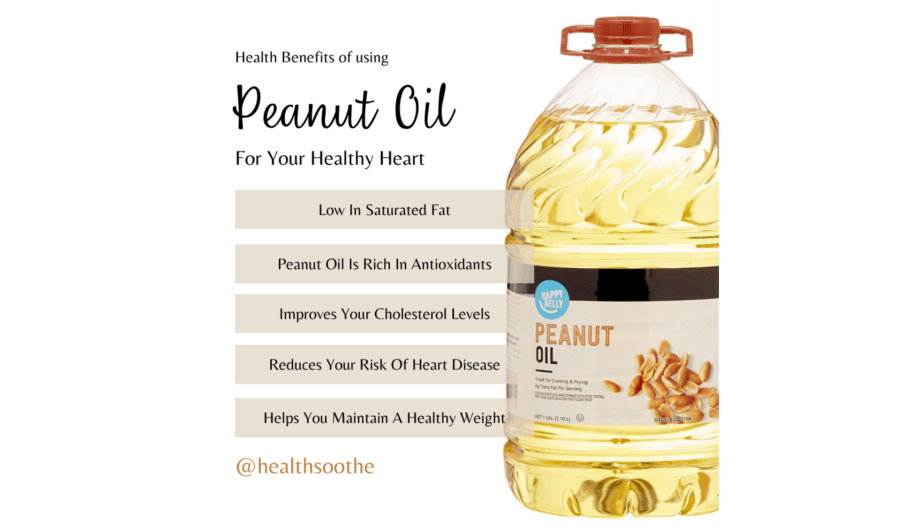- 1. Low In Saturated Fat
- 2. High Smoke Point
- 3. Peanut Oil Is Rich In Antioxidants
- 4. Improves Your Cholesterol Levels
- 5. A Good Source Of Vitamin E And Magnesium
- 6. Helps You Maintain A Healthy Weight
- 7. Reduces Your Risk Of Heart Disease
- Conclusion
Peanut oil should be at the top of your list if you're looking for a healthy cooking oil. Peanut oil is loaded with antioxidants and heart-healthy monounsaturated fats. It has a smoke point of 450 degrees, which makes it perfect for high-heat cooking. In this blog post, we will discuss seven health benefits of using peanut oil.
1. Low In Saturated Fat
Peanut oil is a good choice for those looking to reduce their saturated fat intake. This oil is lower in saturated fat than other oils, such as olive oil or canola oil. In addition, peanut oil contains monounsaturated fats, which have been shown to lower cholesterol levels.
For example, a study found that participants who consumed a diet rich in monounsaturated fats had lower LDL (“bad”) cholesterol levels than those who consumed a diet high in saturated fats.
2. High Smoke Point
Peanut oil has a high smoke point, which means it can be heated to a high temperature without smoking or burning. This makes it ideal for cooking, frying, and sautéing.
The high smoke point also makes peanut oil less likely to go rancid than other oils. Rancid oils can produce harmful toxins that can cause health problems.

Peanut oil is also relatively stable, meaning it won’t break down as quickly as other oils when exposed to light, heat, or air, making it a good choice for long-term storage.
3. Peanut Oil Is Rich In Antioxidants
Peanut oil is known for its high antioxidant content. Antioxidants are molecules that help protect cells from damage caused by free radicals. Free radicals are unstable molecules that can cause cell damage and contribute to conditions like cancer, heart disease, and premature aging.
Peanut oil is a good source of several antioxidants, including vitamin E, phenolic acids, and phytosterols. These nutrients scavenge free radicals, preventing them from causing cell damage.
In addition to its antioxidant content, peanut oil contains several other nutrients that contribute to its health benefits. These include monounsaturated fats, which can help lower cholesterol levels, and polyunsaturated fats, which have anti-inflammatory properties.
4. Improves Your Cholesterol Levels
Peanut oil is not only effective in reducing bad cholesterol levels, but it also helps increase good cholesterol levels. This is thanks to the presence of oleic acid, a type of monounsaturated fat, in peanut oil.
A study published in the Journal of Agricultural and Food Chemistry found that oleic acid helps reduce the risk of atherosclerosis, a condition characterized by the buildup of plaque in the arteries.

5. A Good Source Of Vitamin E And Magnesium
Peanut oil is a good source of vitamin E and magnesium, both important nutrients for maintaining health. Vitamin E is an antioxidant that helps protect cells from damage, while magnesium is involved in energy production and muscle contraction.
If your body lacks either of these nutrients, you may experience fatigue, muscle weakness, or other health problems. Peanut oil can help to ensure that you get enough of both nutrients.
6. Helps You Maintain A Healthy Weight
Peanut oil can help you maintain a healthy weight. Studies have shown that people who use peanut oil have lower body weights and Body Mass Indexes (BMIs) than those who don’t. Peanut oil can help you lose weight or prevent weight gain because it is thermogenic. This means that it helps your body burn more calories.

Thermogenic foods are those that help you burn more calories. Peanut oil is thermogenic because it helps your body burn more calories. Peanut oil can help you lose weight or prevent weight gain because it is thermogenic.
7. Reduces Your Risk Of Heart Disease
Peanut oil is high in healthy unsaturated fats, which can help lower your risk of heart disease. Heart disease is the leading cause of death in the United States, so any food that can help reduce your risk is worth considering.
Heart diseases are often caused by high cholesterol, and peanut oil can help lower your cholesterol levels. Peanut oil also contains antioxidants that can help keep your heart healthy.
Conclusion
Peanut oil is a popular cooking oil that has several health benefits. It is rich in monounsaturated fats and has a high smoke point, making it ideal for stir-frying and other types of cooking. Peanut oil also contains antioxidants and is effective in lowering cholesterol levels.
While peanut oil does have some health benefits, it is also high in calories and should be used in moderation. If you are looking for a healthy cooking oil, consider using olive oil or another type of vegetable oil.

